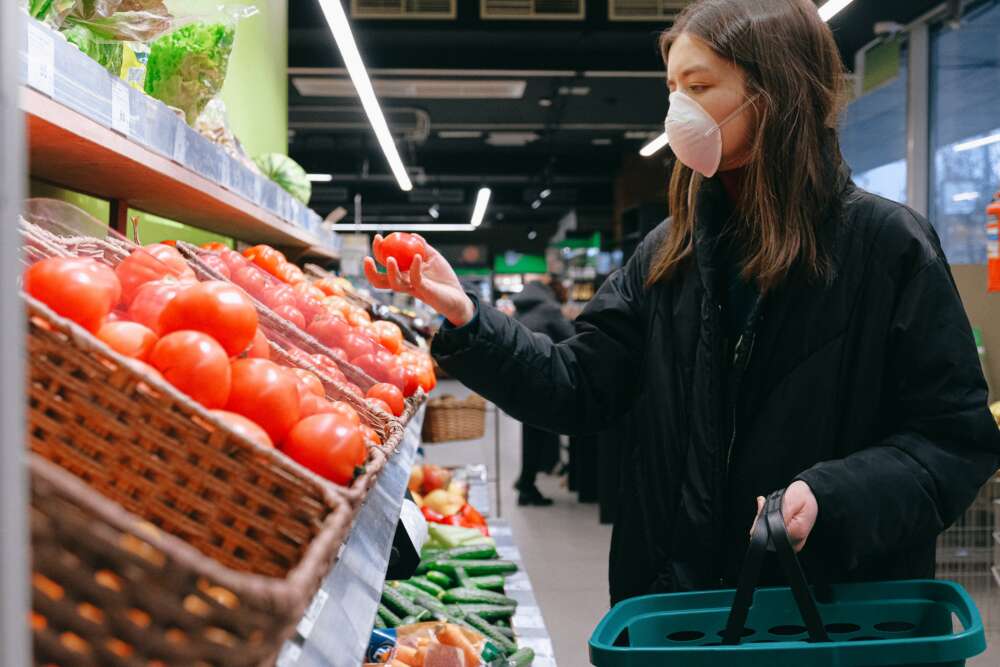
Grocery store workers have faced many potential health risks as they’ve worked through this pandemic, with some now asking to be prioritized along with other essential frontline workers for COVID-19 vaccines once they become more available.
Now, University of Guelph researchers are hoping to learn more about the experiences of these workers and whether the safety measures that were put in place to try to protect them have been necessary or effective.
Prof. Eric Nost, Department of Geography, Environment and Geomatics, and PhD candidate Emily Duncan have been interviewing grocery store employees about their experiences on the job during the pandemic.
Their aim is to develop recommendations for public policy that will help improve measures for the current outbreak and potential future outbreaks.
“Grocery stores are the main way urban consumers access food and COVID-19 has made it clear that grocery store employees are still indispensable,” said Duncan. “We are committed to documenting the lesser heard voices such as those who continue to work minimum wage, high-risk jobs during a pandemic.”

For the project, the pair interviewed nearly 30 grocery store employees.
They say the findings may shed light on limits to technological measures like self-checkout and online delivery. It will also provide key evidence for policymakers to ensure that workers receive fair compensation for the high-level risk that is necessary to sustain access to food during a pandemic.

While this is a small-scale project, Nost and Duncan see it as a stepping stone for future research that examines other challenges in the supply chain that are affecting food security.
“We are proud to be documenting experiences and perspectives of those less well-known members of our community who have served our food system during this crisis,” said Nost. “We believe that our research will benefit the lives of these undervalued essential workers.”
This research is funded by the University of Guelph COVID-19 Research Development and Catalyst Fund.
Contact:
Emily Duncan
edunca01@uoguelph.ca